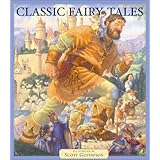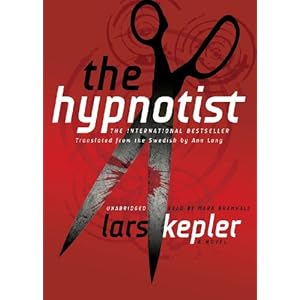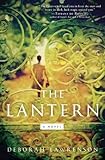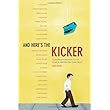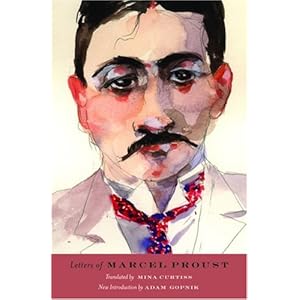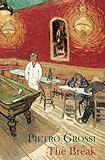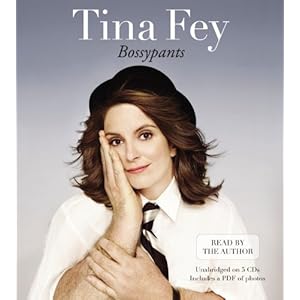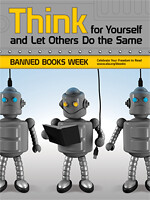biography
Clark Bjorke presents My Father at 100 posted at I'll Never Forget the Day I Read a Book!, saying, "A memoir by Ron Reagan, who disagreed with his father on most things, but still loved him."
book reviews
Mike Bergin presents Review of The Crossley ID Guide: Eastern Birds posted at 10,000 Birds, saying, "A review of an incredibly innovative North American bird guide."
Emm presents Book Review: Sarah’s Key by Tatiana de Rosnay posted at Emm Media, saying, "Against the backdrop of the Vel' d'Hiv roundups in Paris in 1942, Tatiana de Rosnay weaves a powerful story about the choices we make in the name of love."
KerrieS presents Review: THE SWEETNESS AT THE BOTTOM OF THE PIE, Alan Bradley posted at MYSTERIES in PARADISE, saying, "if you are looking for cozy crime fiction that is a little bit different, with a sleuth who is certainly different, then this may be just the ticket. Make sure you have time to savour the careful prose though. And listen carefully - you may hear me chortling!"
Scather presents Scathing Weekly: BOOK REVIEW: The Last American Man by Elizabeth Gilbert posted at Scathing Weekly, saying, "Scathing Weekly celebrates a love of good books, with weekly scathes at those books that are in fact (contrary to popular belief) shitbox... *Footnotes Included!"
Zohar presents Book Review: Moonwalking with Einstein by Joshua Foer posted at Man of la Book.
Jim Murdoch presents Mavis’s Shoe by Sue Reid Sexton posted at The Truth About Lies, saying, "A strong novel about the trauma of the Clydebank Blitz during the Second World War told through the eyes of a nine-year-old girl, Lenny Gillespie. Lenny survives the bombing, but in the chaos of that night she cannot find her mum and her wee sister, Mavis. Told in an urgent, true-grit voice, the story describes the devastation of the blitz as seen through Lenny's eyes"
Eric Gargiulo presents A Review of Stephanie Dray’s Book “Lily of the Nile” posted at CamelCluchBlog.Com, saying, "When we think of Queen Cleopatra VII, we usually think of Liz Taylor in her stunning performance as the famous Queen, or of a sexed-up, indulgent woman who died by a bite from an asp. However, we do ourselves a disservice to pigeon-hole the Queen into a box."
Zohar presents Book Review: Hero by Michael Korda posted at Man of la Book.
JHSEsq presents Book Review: Born Under a Lucky Moon posted at Colloquium, saying, "Born Under a Lucky Moon is the debut novel from a talented and very promising new author, Dana Precious. Based upon her own childhood spent in North Muskegon, Wisconsin, the story revolves around the wacky Thompson family, particularly daughter Jeannie. She wants to marry her handsome boyfriend, Aiden, but is afraid that introducing him to her family will scare him off. After all, that's why she and her first husband, her hometown sweetheart Walker, broke up . . . isn't it? Born Under a Lucky Moon is a hilarious, sweet, poignant story about loving home and the folks there no matter what because, after all, they are always going to love you right back."
KerrieS presents Review: WHERE MEMORIES LIE, Deborah Crombie posted at MYSTERIES in PARADISE, saying, "lived up to my expectations of a good read. I confused myself just a little by having read a later title last year. If you are starting out, then do read some of the earlier titles in order."
Zohar presents Book Review: The Trinty Six by Charles Cumming posted at Man of la Book.
Zohar presents Book Review and Giveaway: so much for that by Lionel Shriver posted at Man of la Book.
BWL presents Bank On Yourself Review posted at Christian Personal Finance, saying, "This is a review of Pamela Yallen's "Bank on Yourself"- a controversial strategy of using insurance in a non-traditional way."
books
Mikaela Cowles presents Osmosis Lies ? Oven Roasted Brussel Sprouts posted at Baguette Taste - Wonder Bread Budget, saying, "I love books and I love food and sometimes I love them together. Here is one such time."
JHSEsq presents Book Review: Katie Up and Down the Hall posted at Colloquium, saying, "The cover photo is a bit deceiving because it could lead readers to believe that Katie Up and Down the Hall is just a story about a dog. It is so much more! It is the story of how the runt of the litter -- a bow-legged, blonde little cocker spaniel who was never destined to be a show dog -- won the hearts of a disparate group of New York City neighbors, herding them together and, ultimately, making them into a family. Dog lovers will relate. Readers who have never owned a dog may well find themselves at the local shelter looking to expand their family after reading Glenn Plaskin's sweet, soulful memoir about the family of which he unexpectedly but grateful became a member."
Arminius Michael presents Read Books Online Free: April 2010 posted at Read Books Online Free, saying, "Fiction novels library, featuring the latest in digital flip book technology, providing you a unique online reading experience."
children's books
Amy Broadmoore presents 9 Books About Children From Around the World posted at Delightful Children's Books, saying, "At Delightful Children's Books, I am posting booklists and reviews of the best picture books I can find about each continent. To begin this series of posts, I shared this booklist of ten picture books about children from around the world.
Read Around the World Booklists:
Maps
Children Around the World
South America
Africa
Europe
The Arctic
Asia
Australia"
non fiction
Will Edwards presents Science of Getting Rich: The Certain Way posted at Personal Development, saying, "There is no question that there are some important insights in the book and I would certainly encourage you to read it if you have not already, but perhaps, for me, the opening chapter, about the causes of wealth, was something I particularly needed to understand. What is it that causes wealth? It is a very good question because it is true that if you can replicate those causes, then – by the law of cause and effect – you can also replicate the effects; that is, of course, the ‘science’ part of the title."
Wakela Runen presents Review–An Apple A Day posted at Wakela's World, saying, "It is a wonderful book describing the origins and meaning of many different proverbs."
novel
Jeanne presents The Seduction of Water posted at Necromancy Never Pays, saying, "a novel about storytelling"
That concludes this edition. Submit your blog article to the next edition of
book review blog carnival
using our
carnival submission form.
Past posts and future hosts can be found on our
blog carnival index page.
Technorati tags:
book review blog carnival, blog carnival.







